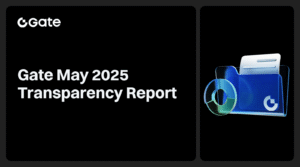Postal worker’s Social Security benefits cut to just $174 a month
When Joyce Debnam’s husband passed away, she began receiving $1,400 a month in Social Security survivor benefits. However, eight months later, that income unexpectedly changed. The trigger: Debnam retired from her job at the United States Postal Service in 2013 after four decades of service. That life change prompted Debnam’s Social Security benefits to be cut to just $174 a month, and she was asked to return $5,000 in overpaid benefits.
Today, Debnam, 80, of Suitland, Maryland, has paid back the $5,000 sum and relies almost exclusively on her postal pension to pay bills, which means her other retirement goals such as traveling or fixing up her home are not possible. Debnam is one of millions of workers who is affected by Social Security rules regarding public workers and reductions in the benefits they are eligible to receive.
How rules affecting public employees work
The Windfall Elimination Provision, or WEP, reduces benefits for people who receive a pension from work where they did not pay into Social Security and also had fewer than 30 years of substantial employment or covered employment. About two million people, or 3% of Social Security beneficiaries, were affected by the WEP as of December 2022, according to the Congressional Research Service. Another rule, the Government Pension Offset, or GPO, reduces the spousal, widow or widowers’ benefits for people who also receive pensions from government work not covered by Social Security. Approximately 734,601 Social Security beneficiaries were affected by the GPO as of December 2022.
Many pension-eligible workers are unaware of rules
Like Debnam, many workers are surprised to find their benefits reduced when they are counting on that income. Rep. Mike Carey, R-Ohio, said that these policies make it difficult for affected workers and their families to plan for retirement. Carey stated that “far too often, people are unaware that they are subject to the WEP or GPO until their spouse retires.”
Congress is considering ways to address these rules. One proposal, the Social Security Fairness Act, calls for eliminating both the WEP and GPO altogether and has the support of a majority of House lawmakers, with 300 co-sponsors.
How beneficiaries can estimate retirement income
There are steps beneficiaries affected by these rules may take to gauge how much income they may expect in retirement. The Social Security Administration provides a supplemental fact sheet about the WEP and GPO rules for workers with five or more years of noncovered earnings. Individuals can also use tools online to calculate their adjusted retirement benefits themselves through WEP calculators. However, there is still the risk of information being overlooked or incorrectly transferred. This has prompted Social Security expert Laurence Kotlikoff to urge beneficiaries to carefully track their own earnings and pension benefit information and cross-check it with Social Security’s records.






